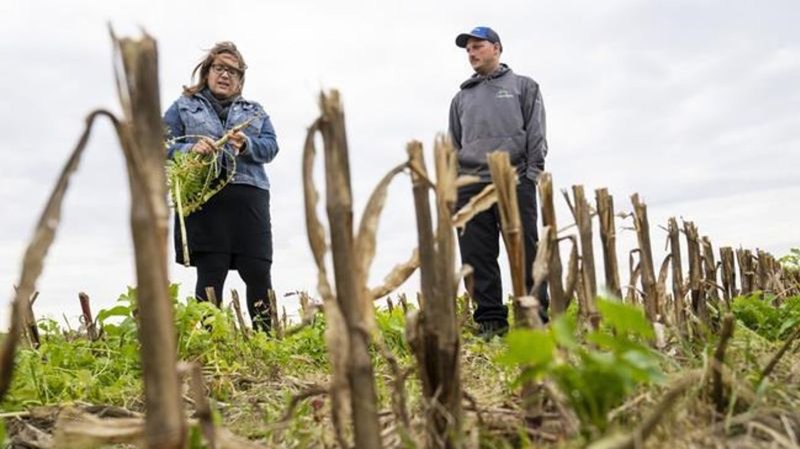
Climate Changed: Quebec farmers improve soil as water supply becomes less reliable
SAINT-OURS, Que. — On the Beauchemin family farm in southern Quebec, the problem used to be too much water. But Raphaël Beauchemin says that over the years, his grandfather, father and uncles learned how to cope.
Now, with the changing climate, he said, Fermes J.N. Beauchemin et Fils faces a new challenge: long dry periods in the summer.
Beauchemin’s father, Ghislain Beauchemin, who has been bringing his children into the dairy and grain farming business for around 15 years, said there are still intense rains that sometimes bring 10 centimetres in 24 hours, but at other times the ground can be parched for two months.
“You can manage a period when it’s too flooded and then you can manage one that is too dry,” he said in an interview at his farm in St-Ours, Que., around 80 kilometres northeast of Montreal. “You have to adapt to be able to take it all, so that it doesn’t cause disasters in each case. That’s where we’re working.”


